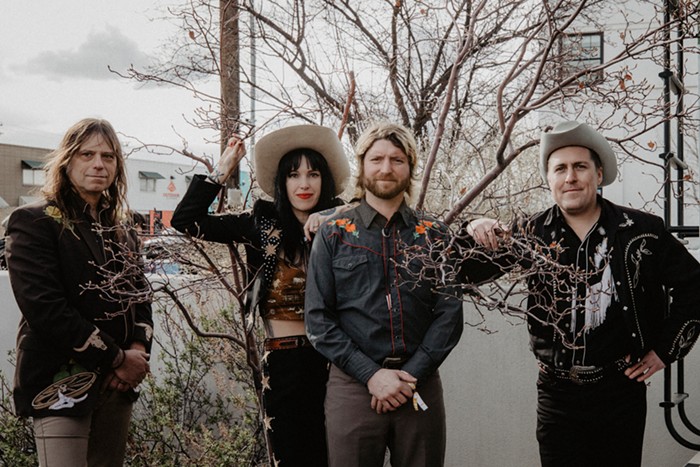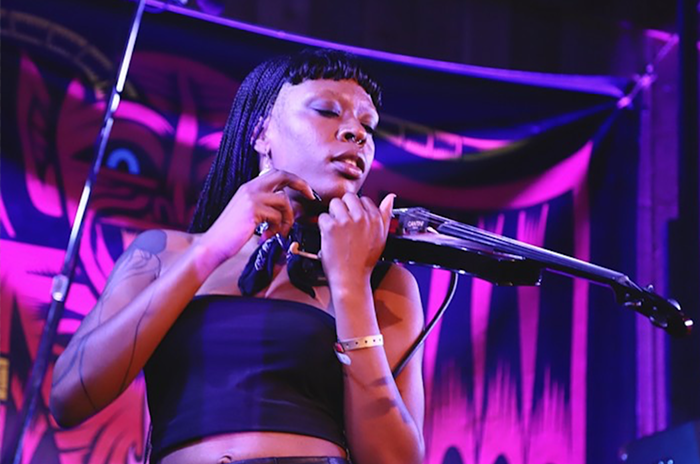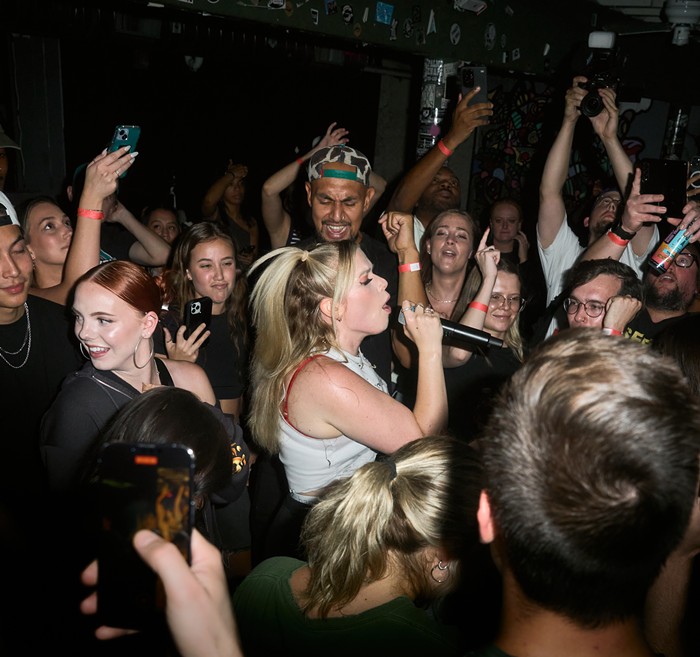CARLY RAE JEPSEN rode the wave as long as she could. After her 2012 global mega-hit "Call Me Maybe," the Canadian singer/songwriter released more singles and a sophomore LP, Kiss; toured; performed on TV; signed endorsement deals; toured some more; and collected awards.
And then she disappeared. For more than two years.
In the midst of "one-hit wonder" snark, Jepsen holed up in her favorite songwriting spots to work on her follow-up to Kiss. When she finally had her foundation for the new album, she went to her band and played them the demos.
"My keyboard player was like, 'I'm going to have to learn the saxophone again, aren't I?'" Jepsen says with a laugh. "I'm like, 'I know you used to play. Dust that thing off because yes, there's a lot of sax on this album.'"
The resulting body of work turned out to be last summer's Emotion, a vibrant and mature collision of unabashedly '80s synth-pop and punchy, 21st-century indie-rock production. Despite raves from critics and fans, the album struggled commercially, debuting at number 16 on the Billboard 200 album chart and plummeting thereafter. The combination of positive reviews and disappointing sales spurred speculation about the album's promotional rollout and drew comparisons of Jepsen to another critically adored pop singer who lacks a major mainstream footprint: Swedish star Robyn.
Nevertheless, Jepsen has been busy reprising the role of Frenchy for the live TV production of Grease and kicking off her Gimme Love Tour, which brings her to Portland Tuesday night.
MERCURY: You haven't toured a ton since Emotion came out, and you've no doubt been busy with Grease. How excited are you to get back out on the road and play your songs?
CARLY RAE JEPSEN: I was asked earlier, "Are you writing for the next album?" But I still haven't celebrated this album. I feel like we did all the work for it, and we have yet to go out and celebrate it. We had a little baby tour where we got to try these songs out, and the exhilaration that we felt from those shows was a different kind of passion than any of us had experienced before. So yeah, we're gunning to get back out there.
I understand that you threw away hundreds of songs in the making of this album. That's a lot!
Yeah, it kind of makes me cry [laughs]. I didn't really know what I wanted to make and I didn't know how to figure it out, so part of the process of discovering that was just trying everything. I became a little bit of a workaholic in terms of songwriting, where I was writing daily and nightly and reworking old songs that I liked. I'd try five different productions until I found one I liked. I just had to get it all out of my system before I finally landed in a direction that felt really authentic and reflective of all the things I love about pop music that felt like what I wanted to share.
In the wake of a huge hit like "Call Me Maybe," how did you carve out that kind of space to take the time to find the music you wanted to make?
It began with a sit-down in my manager Scooter Braun's office where I did show up to sort of say, "Listen, we did Kiss in a happy rush and I'm proud of it. We made an album in two months and it was a really fun challenge. But with this next one, I want to take a beat. I need a second to figure out what I want to do next. I know I've got something coming, but you've got to give me a beat."
He understood. I think if I hadn't had Scooter on my side it would've been really hard to go to the label and ask for that time, but he got it. He trusted my vision and had heard enough demos to know that I wasn't just sitting at home on holiday, but was really working to make something of quality.
Can you tell me about your process of getting from hundreds of songs down to a manageable number for an album?
I'd send Scooter demos as I went along and I was sending in my wish list of producers that I really loved and wanted get in the room with or meet up for coffee or tea. And slowly but surely the album took form. I feel like there are probably a couple albums in between there that no one will ever hear.
I can imagine that part of your motivation for taking your time and working with the right people was to make sure that your next step after "Call Me Maybe" was a very solid step that positioned you where you want to be, as opposed to a quick follow-up to a massive hit.
I think if Emotion had come to me earlier, I probably would've released it earlier. But there was also an awareness that radio was so oversaturated with that song, I felt like a little pause would be beneficial for not just me but also the public. I knew I didn't want to just make "Call Me Maybe" again. I wanted to make something different and I didn't know what that way, but I knew I was going to find it. So that was my mission for the next couple of years.
Cosmopolitan recently called you "a pop star for grown-ups." How does that sit with you?
I'm 30 years old. There was definitely a desire for there to be maturity to this album—for it to still be pop but to be something that people my age could listen to. And I think that's been one of the glorious surprises of [playing live]: seeing the people that are showing up are no longer the younger Bieber fans, necessarily. But they're people our age who are just lovers of pop music and who want to dance and jam with us. And that's gratifying to me as a performer because it changes the way you perform when you're performing for people your age. You can tell more intricate stories about what really happened in this song. You can be, I feel, a lot more authentic. And I'm just enjoying it at a whole new level.



















